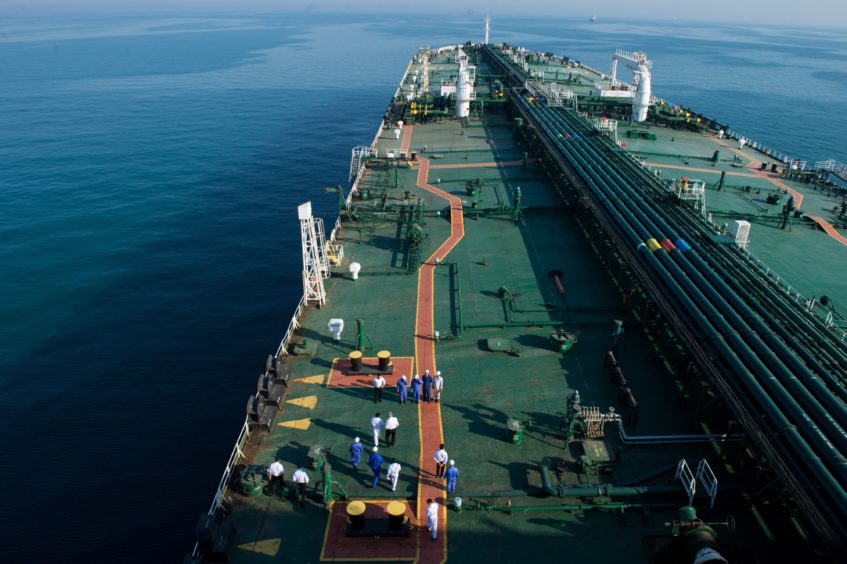
The U.K. is in talks with the U.S. and other allies about beefing up their military presence in the Persian Gulf to deal with the rising threat to shipping posed by Iran.
Britain raised the threat level to 3 — the highest possible — on Tuesday for ships operating in the Gulf, according to a person with knowledge of the matter. That followed a number of incidents in nearby waters, and came a day before British warship HMS Montrose had to stop Iranian vessels from impeding a BP Plc oil tanker. Tehran said the incident didn’t happen.
“We are talking with the U.S. about building on our presence in the face of recent threats to shipping in the area,” Prime Minister Theresa May’s spokeswoman, Alison Donnelly, told reporters on Friday. “We have a number of military assets already in the region” and the U.S. is discussing “with a number of countries — including ourselves — how we might build on this.”
The U.S. is trying to put together a coalition “over the next couple of weeks” that would provide naval escorts to commercial shipping, General Mark Milley told a Senate hearing on July 11.
“The freedom of navigation is a fundamental principle and a norm for the international order,” he said. “We have a crucial role to enforce that norm.”
The confrontation between the U.K. warship and the Iranian vessels was reported by the British government. Though the attempt to block the passage of the British Heritage oil tanker were thwarted, they highlight a growing trend of disruptions to shipping in the area. Two tankers were sabotaged in the region last month, while four were struck in May.
Tanker Seizure
The situation is even more fraught for Britain after Royal Marines helped Gibraltar to seize a supertanker hauling Iranian crude in the Mediterranean Sea. The U.K. has said it acted to enforce European Union sanctions on the Assad regime in Syria.
Iran’s Revolutionary Guard Corps warned on Wednesday that it would “reciprocate,” and on Friday, Iranian Foreign Ministry spokesman Abbas Mousavi dismissed the U.K.’s reasons for seizing the tanker as legally irrelevant. He urged Britain to release the ship as soon as possible, according to the state-run Islamic Republic News Agency.
“Iran will focus on retaliation towards U.K. assets,” said Olivier Jakob, managing director of consultant Petromatrix GmbH. “As far as escalation, I don’t know how far they want to escalate it, but they can do it just to be a nuisance.”
While the U.S. and U.K. may cooperate in securing shipping routes, they differ on other key issues relating to Iran.
The U.S. tightened sanctions on Iran’s oil exports in early May after withdrawing from the 2015 nuclear deal with the Islamic Republic, as it seeks to force Tehran to negotiate a wider agreement reining in its regional role. The U.K. is one of three European powers seeking to salvage the existing accord and urging restraint.